Men Are Partners
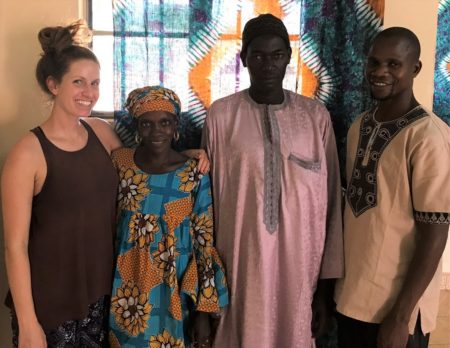
I attended an outstanding “Men Are Partners” workshop with eight other PCVs and nine Gambians. Anna Rains, a second year Health volunteer, organized this event with Kaddy Wadda, Ousennu Gai, and Mr. Wan. Kaddy Wadda is Anna’s #1 counterpart, a farmer, and mother’s club member. Ousennu Gai is a school accountant, head of his villages water committee, and owns a bitik (a small store). Mr. Wan is a teacher at the village lower basic school. One of Anna’s goals was to have her Gambian counterparts lead the sessions, because it is her belief that Gambians learn best from other Gambians. The workshop also addressed many Health and GAD (Gender & Development) concepts.
Each participant received a handout clearly stating what the workshop was going to cover:
- Health based education for men is not prominent in the rural areas and sometimes it’s difficult to get the conversation started.
- Women attend RCH (reproductive & child health) and are typically more informed.
- How do we bridge the gap?
- Is it possible that health priorities are varied based on gender?
- While this is an educational program tailored towards men, it would be pointless without input from women.
- Today’s focus will be to have open and honest discussions, with the intent to understand each other’s point of view.
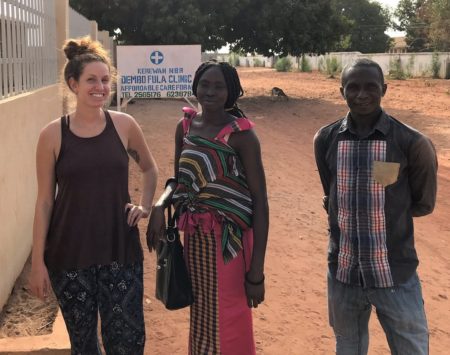
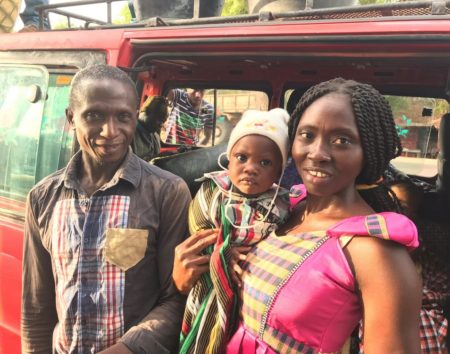
My counterparts, Momodou Jatta and Anna Mendy with her son Francis, and I took a gele from Farafenni to the Dembo Fula Clinic in Kerewan, where Anna Rains welcomed us to her program. As the other participants were arriving and breakfast was being served, we were given a list of vocabulary words to discuss in preparation for the day’s program. We were asked to translate seventeen terms into local languages, so the concepts would be fully understood: bodily health, high blood pressure, diabetes, pregnancy, iron deficiency, tetanus shot, anti-malaria pills, diarrhea, ORS (oral rehydration solution), family planning, condoms, depo shot, birth control pills, arm implant, sexual health, sexually transmitted diseases,and financial planning.
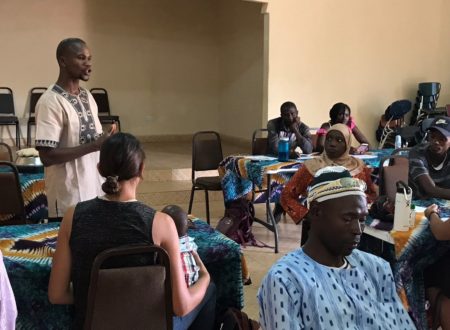
Mr. Wan, Kaddy Wadda, and Ousennu Gai each addressed the group in local languages before we divided into men and women groups to discuss and prioritize six concepts: (1)basic health for men, women, and children, ie: high blood pressure, diabetes, pregnancy, diarrhea; (2)family planning; (3)sexual health and sexually transmitted diseases (STI); (4)child education and the importance of educating girls; (5)men and women working and making decisions together; (6)financial planning. It was interesting, and perhaps surprising, to see how the two groups had ranked the concepts very similarly.
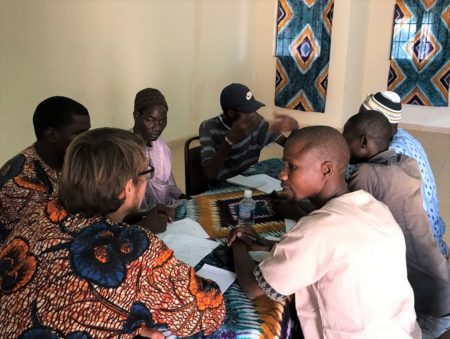
Men Ranking of Concepts
- Men and women working and making decisions together
- Child education and the importance of educating girls
- Family planning
- Basic health ie: high blood pressure, diabetes, pregnancy, diarrhea
- Financial planning
- Sexual health and sexually transmitted diseases (STIs)
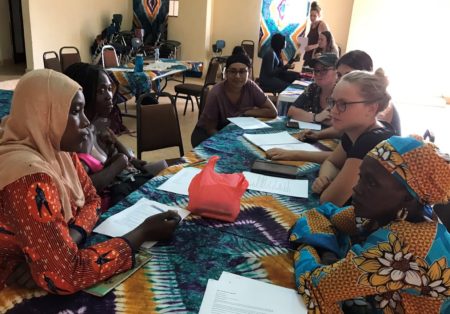
Women’s Ranking of Concepts
- Men and women working and making decisions together
- Child education and the importance of educating girls
- Financial planning
- Family planning
- Basic health ie: high blood pressure, diabetes, pregnancy, diarrhea
- Sexual health and sexually transmitted diseases (STIs)
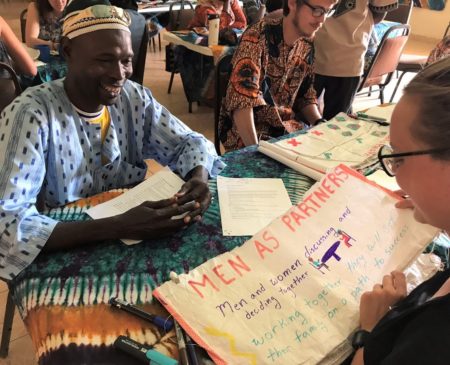
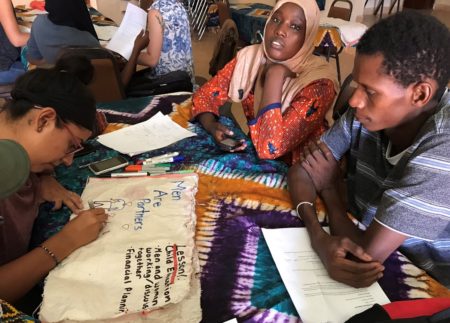
After coming back together and discussing how the men and women ranked the six concepts, the groups of PCV and counterparts made rice bag books. These books will be great teaching aids to take back to their villages, and share the concepts learned at the workshop with community members. Although the Gambians who attended the workshop were all well educated, not all community members can read or write, so visual aids can be a valuable resource. Additionally, making teaching aids is a great way to reinforce the concepts discussed during the day long event.
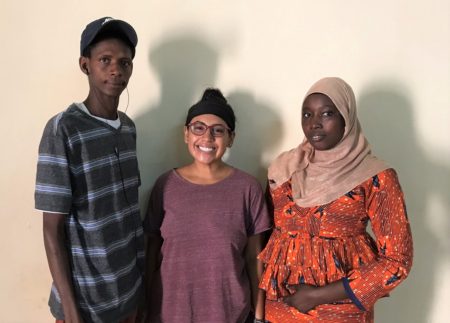
Leslie Hernandez is a first year Health volunteer, and attended the workshop with Suleman Bah and Ndey Manneh. Ndey Manneh is the CHN (community health nurse) in Leslie’s North Bank village. Suleman Bah is a farmer, father, and teaches parenting classes sponsored by Child Fund International.
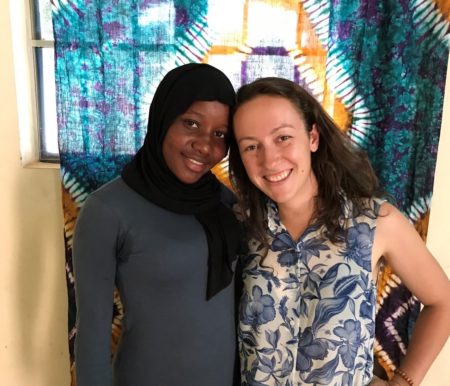
Anna Passaniti is a first year Health volunteer and attended the workshop with her counterpart, Fatou Saidykhan, who is the CHN (community health nurse) in her North Bank village.
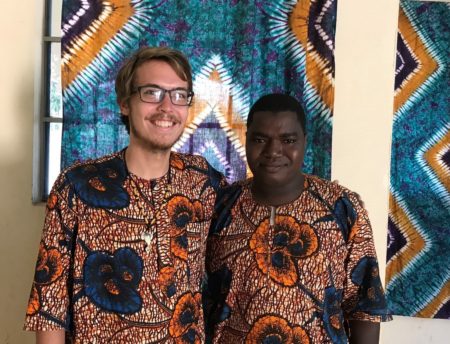
Dustin Lape is a first year Agriculture volunteer, and his counterpart Yunusa Jallow is an active member of his village in the North Bank.
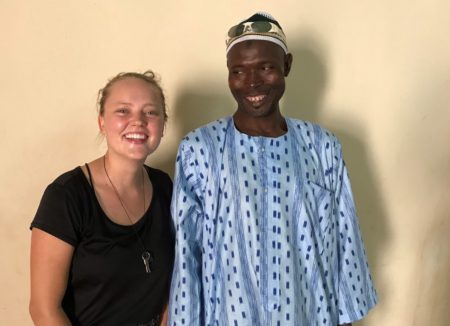
Helena Oldenburg is a first year Agriculture volunteer, and attended the workshop with her host uncle Ansuman Sanyang who is a member of the VDC (village development committee) in their North Bank village.
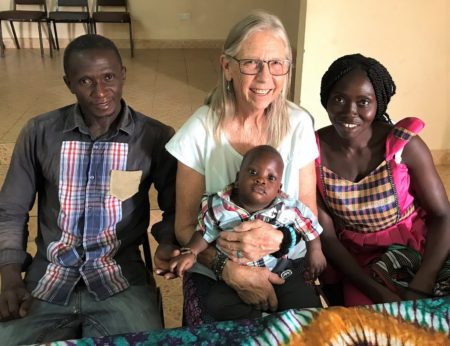
Momodou Jatta is my #1 counterpart who helps me with everything I have been doing as a PCV in Farafenni. Anna Mendy is the accountant at the school I work at, and a mother of three – two daughters and six month old Francis. These two people have give me tremendous ongoing support for all of the projects I have been involved in.
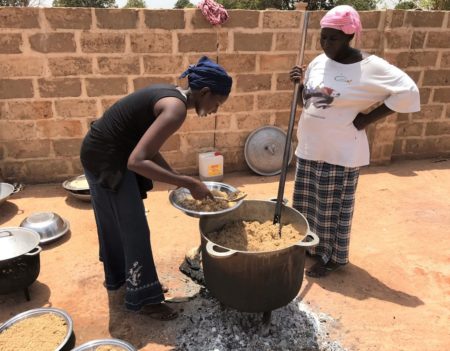
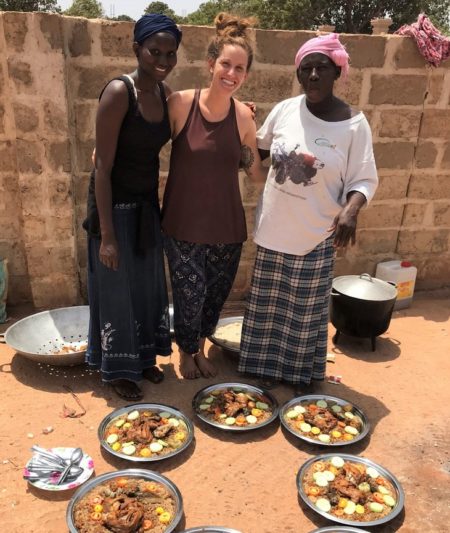
No Gambian workshop can function without food. We were served beans and bread for breakfast and chicken, vegetables and benachin (a Gambian rice dish) for lunch. Every Gambian woman has her own special way to make benachin, and it is amazing to watch them cook outside in the hot mid-day sun, in huge pots over a open fire, preparing these delicious meals.
I always enjoy attending events put on by other volunteers, and being able to expand my knowledge with projects from different sectors. It’s not easy to travel in The Gambia, and casually visiting other villages is not something I do, so being able to participate in a workshop and meet new people is a welcome opportunity.
Thank you Anna Rains for a great “Men Are Partners” workshop.
One thought on “Men Are Partners”
Everything sounds so interesting. This was such a great opportunity for you, so lucky you could participate, plus the advantage of being able to travel to so many other great places. Are you rejoining again, if not when do you come back? We have to visit and see all the pictures and hear about the experiences when you return.
Marianne
Comments are closed.